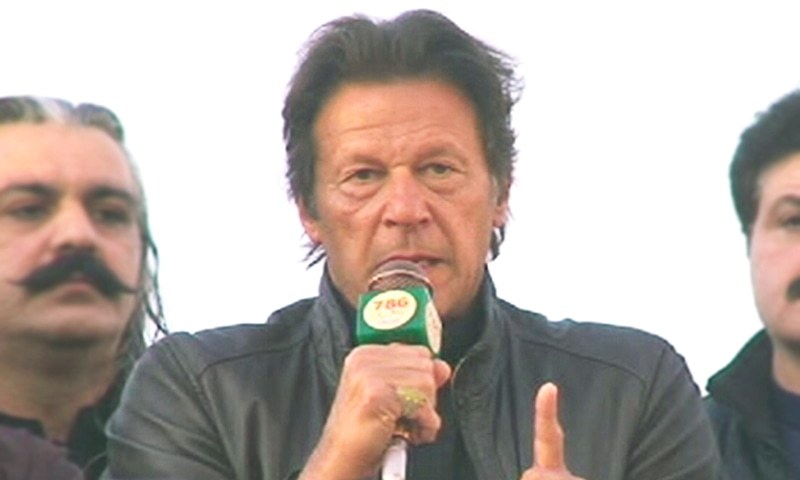Pakistan Tehreek-i-Insaf (PTI) Chairman Imran Khan on Sunday joined Mehsud tribesmen protesting in Islamabad in their demands for an end to extrajudicial killings and the arrest of tainted police officer Rao Anwar, wanted for the murder of Naqeebullah Mehsud.
He said PTI will run a campaign to ensure that the people of tribal areas don't have to face what they did during the war on terror, for which, he said, "The merger of Federally Administered Tribal Areas (Fata) with Khyber Pakhtunkhwa (KP) is very important."
"I will stand with you and ensure that the demand for the release of those in illegal custody, or those who are missing, reaches wherever my voice can be heard, including the army chief," Khan promised. "I will also take your demand for removal of landmines to higher ups and will request the army chief [for the removal of land mines]."
Protests against the extrajudicial killing of Naqeebullah Mehsud, a South Waziristan resident who was among four killed in what was later found to be staged encounter led by then SSP Malir Rao Anwar, began from Karachi and subsequently culminated into a movement for rights of people of Fata after the authorities were unable to apprehend Anwar.
Demands by Islamabad protesters:
- Arrests of former SSP Malir Rao Anwar and other police officers involved in Naqeebullah's murder
- Removal of landmines from Fata
- Recovery of missing persons and their production to courts
- End to practice of imposing curfews in Fata after any untoward incident
A sit-in at Karachi's Sohrab Goth which continued for around two weeks and was called off earlier this week after a march that began from Dera Ismail Khan reached the National Press Club in Islamabad.
While the Islamabad sit-in, whose organisers have vowed to continue the protest until the arrest of Anwar and other officers involved in Naqeebullah's extrajudicial killing, comprises mostly of Mehsud tribesmen, others from Fata and political parties have also joined in.
Besides the arrest of police officers, the protesters are also demanding that the practice of imposing curfews in Fata, especially Waziristan, after any incident should end, landmines should be cleared in various areas of Waziristan and missing persons be produced in courts.
The protests, however, have failed to attract mainstream media coverage, which some attribute to the provocative slogans raised by some protesters during the march.
Earlier in the day, Jamaat-i-Islami (JI) chief Sirajul Haq also spoke to the gathering. Criticising police actions and extrajudicial killings, holding the Sindh government for Naqeebullah's murder.














































